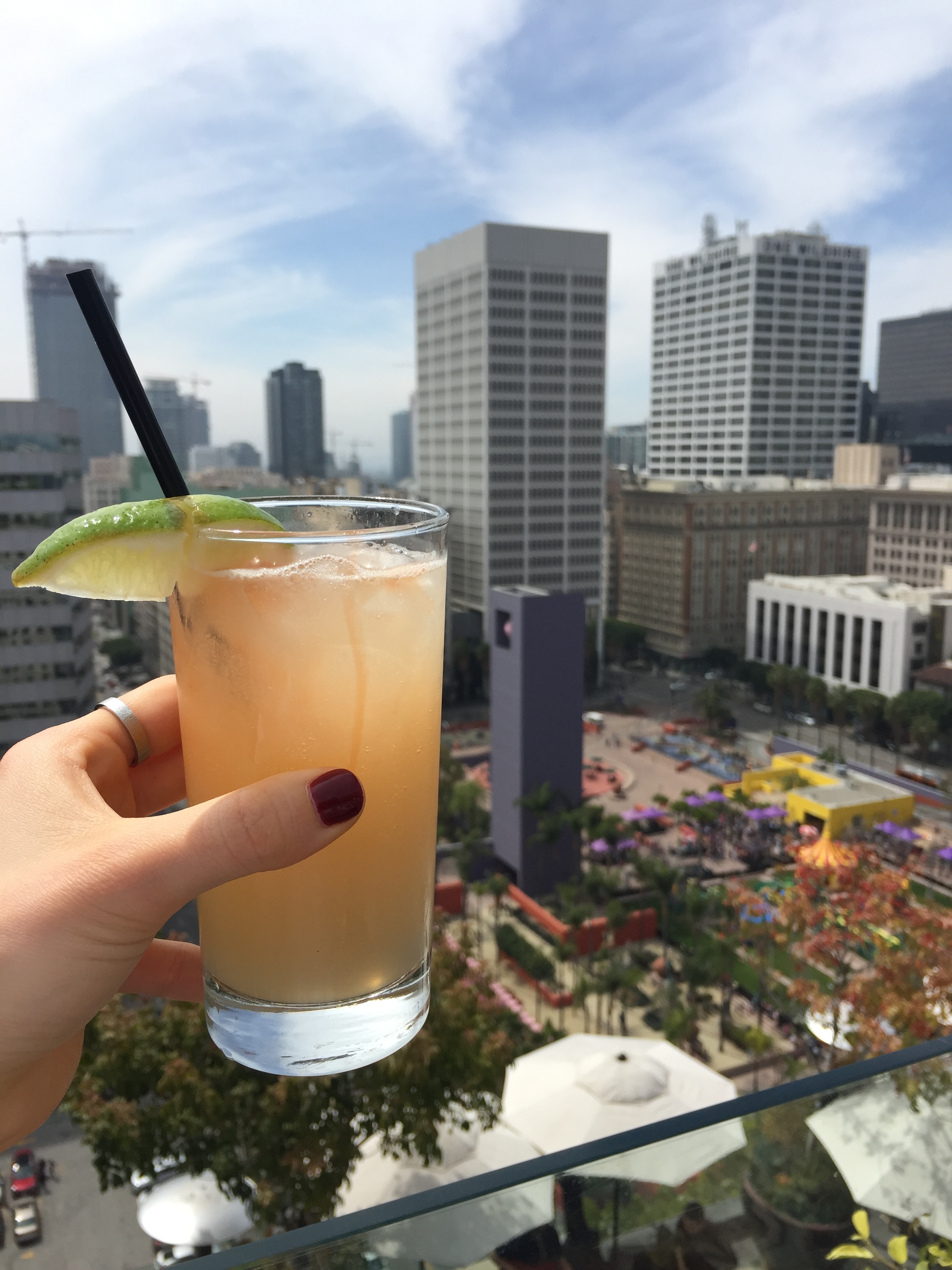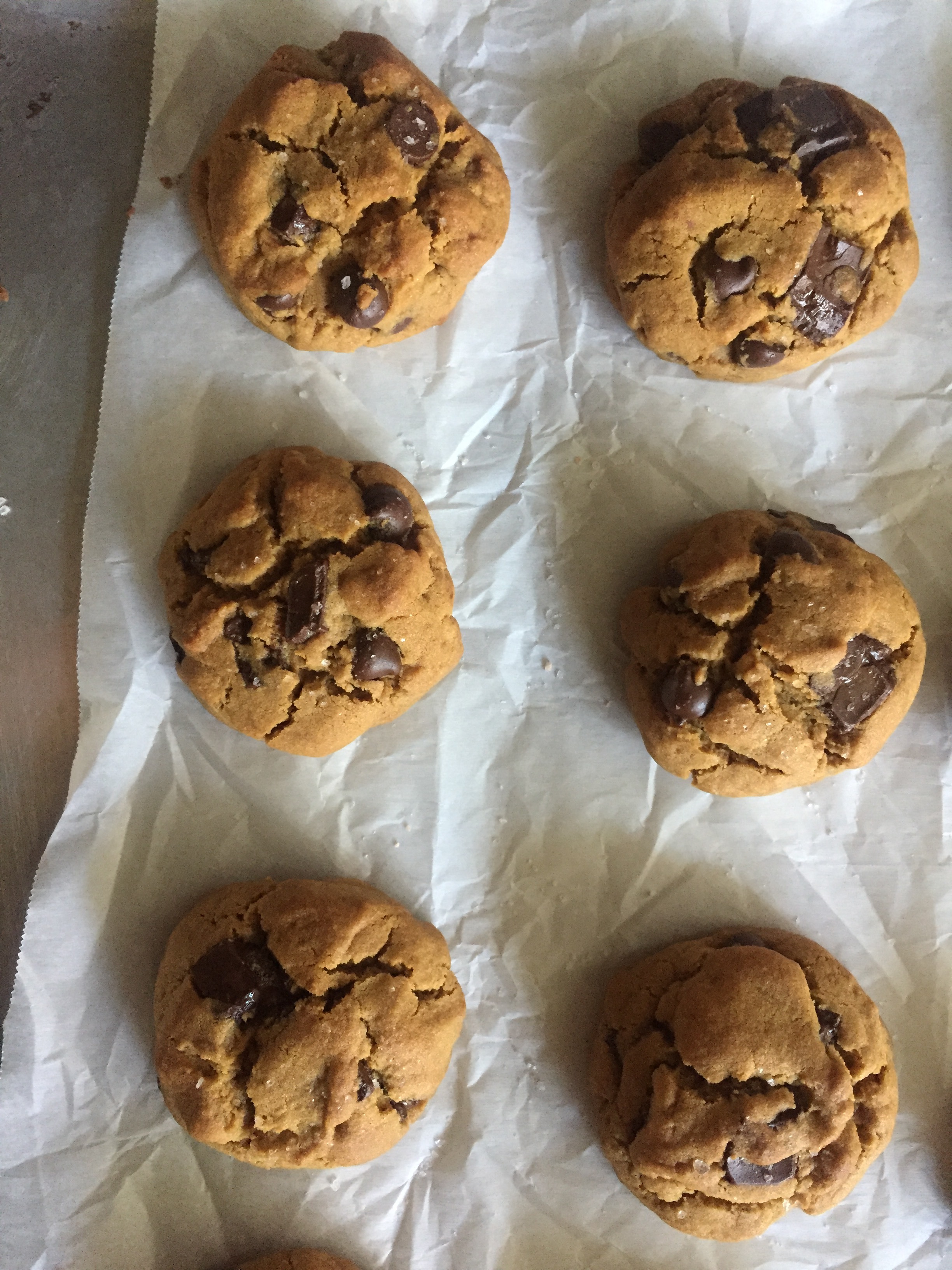A year has gone by since I began studying Intuitive Eating, and I now see that I've had the wrong idea about it for quite some time. To say that I am not an expert is an extreme understatement. I haven't even finished the book yet, so my misunderstanding is, well, understandable I think.
As I sought more freedom with food and found IE, I couldn't help but share the encouragement. The number of eyes reading my blog was growing and growing, too, and the Instagram world needs some IE influence, so I wanted to do what I could to help. Dropping my vegan diet helped me take a few steps closer to food freedom, and so did eating out more frequently with friends without checking the menu beforehand, convincing my friends of a restaurant that served more salads and wraps than burgers and fries, etc. A shift in my blog's focus from recipes for all sorts of meals to specifically recipes for baked goods like cookies and cakes and whatnot pushed me a little closer still.
Most mix-ups in my life - major or minor - are a direct result of busy-ness and this one is no different. School picked up it's pace and the blog demanded more of me, and I lost track of the Intuitive Eater I'd begun to develop. Don't get me wrong here - I've always loved burgers and burritos and donuts (to name a few things) and I bet I probably always will, but that doesn't mean that I always crave them.
Though my inner Intuitive Eater is highly motivated, she isn't perfectly educated on the art. Before I knew it, the highly motivated Intuitive Eater bumped into the also highly motivated Mover, and they didn't agree. My Intuitive Eater at the time wanted to prove to others that I can bake with sugar and flour and butter and it's fine, that I can eat nachos and love every bite and move on with my life. And that's wonderful. I think most of us who have struggled with food and body image need to reach that point when searching for peace with food.
But the problem arose when I didn't understand that IE (and living) looks different for everyone. Some of the bloggers I follow don't find as much joy in intense movement and daily exercise as I do, and because they are the ones from whom I learn most of the information regarding IE, I found myself under the impression that the kind of movement I love is harmful, an obstacle to tackle in my IE journey and leave behind.
Hopefully you can guess by now that I was wrong somewhere along the lines of this story. Well, I was wrong right there. IE is about restoring the body's instinctual physiological signals, cravings, etc. - rejecting the diet mentality and making peace with food and body image along the way. It's basically the definition of listening to one's own body. In no way am I claiming that these bloggers I look up to portrayed a false definition of IE - it was my misunderstanding and coming to terms with it required quieting down all the noise going on around me so that I could... well, just listen to my body.
Nowhere in IE are there rules that one must eat chocolate chip cookies and nachos and donuts and blah blah blah. The ability to look beyond the nutrition facts of those foods and just enjoy them for what they are can be part of IE, most definitely. Nowhere in IE are there rules that one must only go on long walks and practice gentle yoga. On the other hand, nowhere in IE are there rules that don't allow green smoothies and kale salads and cookies made with almond flour and dates. Those, quite honestly, are some of my absolute favorite foods because my taste buds savor them and my body appreciates their metabolic function when I want to challenge myself in my preferred forms of exercise. Nowhere in IE are there rules that condemn HIIT and cycling and running. My body absolutely thrives off of these, and it knows when enough is enough and how to properly refuel.
It's taken me some time (read: a whole year) to finally rest in this peaceful place of understanding because, at first, I thought all of it was a sign I hadn't grasped IE yet. I thought maybe my behaviors (enjoying the intense exercise) and desires (craving the greens and other whole foods) was a sign I was stepping back into some sort of an eating disorder. Very wrong. What's different about now vs. an eating disorder? Well, I can take rest days sometimes to sit on the couch like a potato and I feel perfectly fine. I can eat burgers and donuts when they make my mouth water and not feel the need to construct a burger that is free of carbs or extra low in fat to the point where it doesn't even taste good or look like a burger. Food doesn't stress me out. It doesn't control me.
IE might look different for you than it does for me. Take these words for what I intend them to be - encouragement to learn more about IE, and in the process, your body + preferences + tastes + favorites + not-so-favorites, etc. Don't compare yourself, your workouts, your eating habits to someone else's. On that same note, please always remember that I am not a doctor or a registered dietitian, so take my advice with that in mind and refer to the sources I've linked below for further information.
I hope you found this relevant, interesting, useful, or at least something positive and uplifting to your day. Thank you for taking the time to read it, and I'll see you back here next time I have something nutrition- or food-related to say!
To Jeannette (@sweatysweetpotato), who has become one of my absolute best friends in the last year and a half during which we've known each other, thank you for helping me process all my thoughts, for listening, and for offering your own wisdom and advice, and for encouraging me to keep pursuing my intuition!
RESOURCES:




















